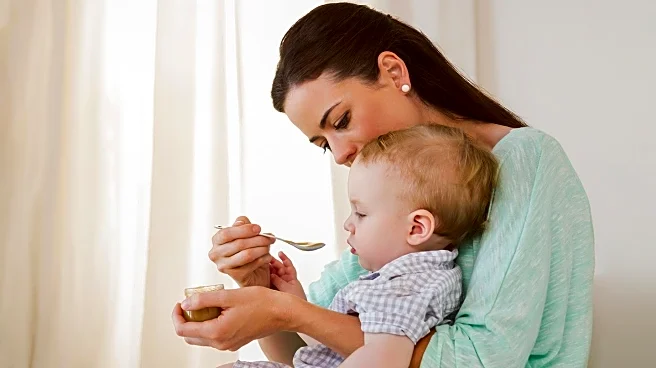What's Happening?
The National Health Service (NHS) in England and Wales is set to introduce a chickenpox vaccine for children starting in January. This development, reported by Metro, aims to mitigate the risk of children developing severe symptoms of chickenpox, thereby reducing the need for them to miss school or nursery. The Times highlights that this is the first vaccine to be added to the routine NHS schedule since 2015. The i Paper describes the rollout as 'long overdue,' aligning England with countries like the United States, Canada, and Australia, where such vaccinations are already standard practice.
Why It's Important?
The introduction of the chickenpox vaccine is significant as it represents a proactive step in public health policy, potentially reducing the incidence of chickenpox among children. This move could lead to fewer school absences and less strain on parents who need to care for sick children. Additionally, by aligning with international standards, the NHS is enhancing its preventive healthcare measures, which could lead to long-term cost savings for the healthcare system. The vaccine's introduction may also prompt discussions on further updates to the NHS vaccination schedule, reflecting evolving healthcare needs.
What's Next?
As the NHS prepares for the vaccine rollout, logistical planning will be crucial to ensure widespread availability and accessibility. Public health campaigns may be launched to educate parents about the benefits of the vaccine, aiming to achieve high uptake rates. Monitoring and evaluation will likely follow the rollout to assess its impact on chickenpox incidence and healthcare resource utilization. Stakeholders, including healthcare providers and policymakers, will be watching closely to determine the success of this initiative and its implications for future public health strategies.









